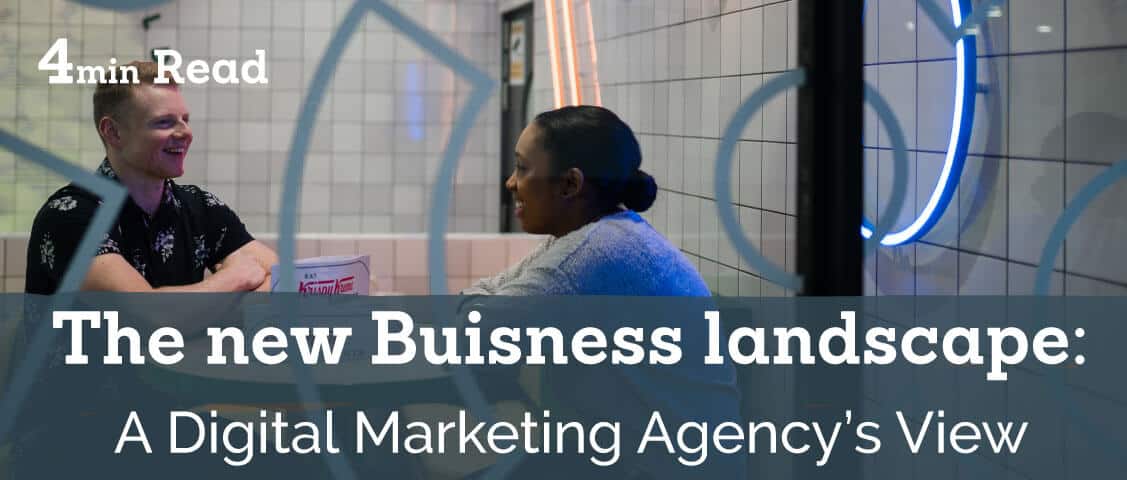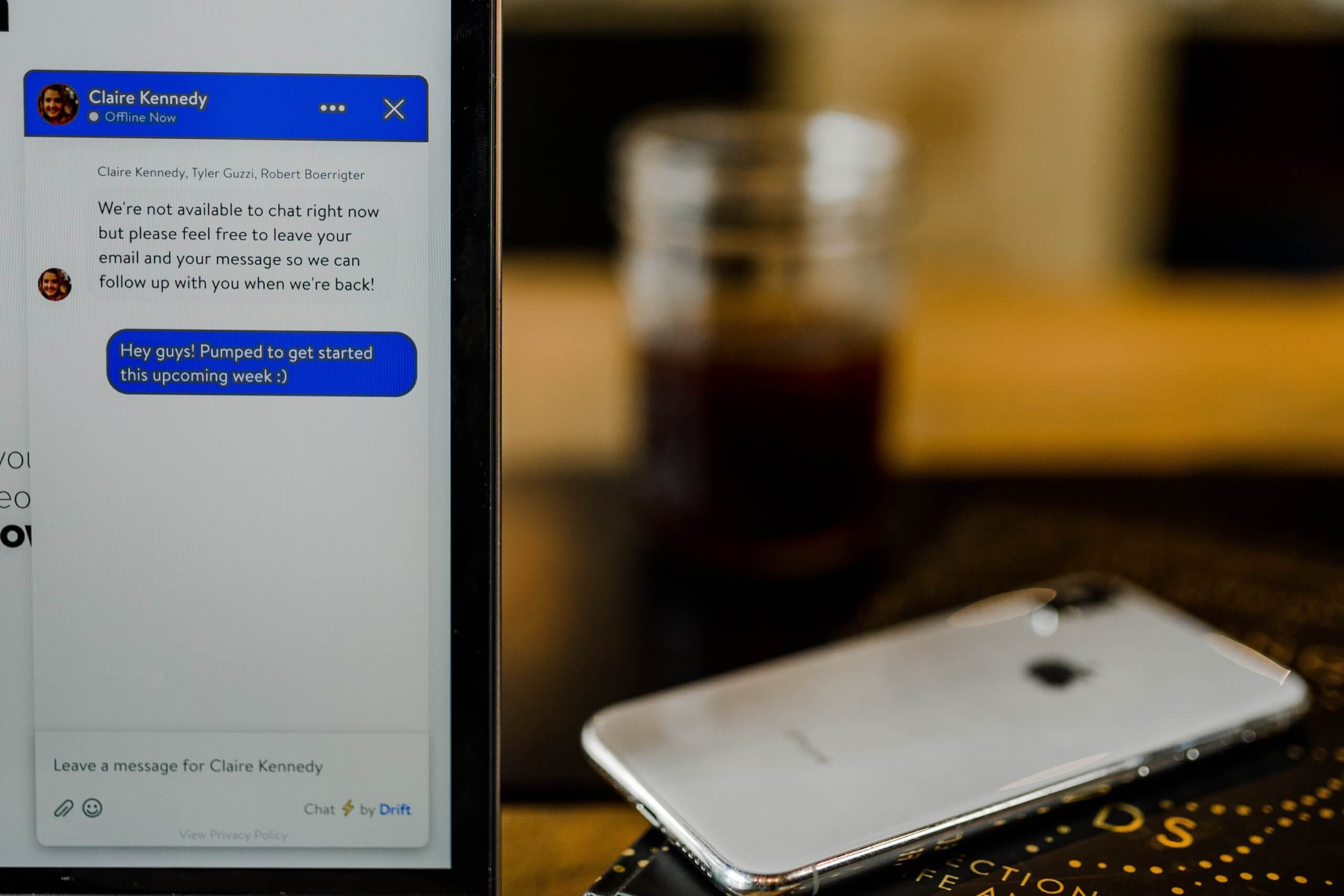How Tech is Changing the Marketing Landscape: A Digital Agency’s Perspective

Published:
As one decade ends and another begins, technology continues to create experiences that we could never have imagined. Bringing with it a global digital business transformation. Now, we can browse the internet through a pair of glasses, chat with AI to solve online shopping queries, or transport ourselves to somewhere else entirely using augmented reality. What seemed like science fiction has become everyday reality!
In the corporate world, the rise of new tech means new ways of engaging customers, expanding markets and more. This is especially the case in the digital marketing sector, where helping businesses adapt to changing consumer habits and navigate the complex digital landscape is every agency’s number one goal.
Bigfoot Digital are a leading digital marketing agency based in Yorkshire, UK. Here’s their take on how tech has revolutionised their sector and ignited their business’s potential.
How Digital Business Transformation is Changing the Work of Digital Marketing Agencies
Chatbots: your friendly robot assistants

Browse to a website’s support pages and there’s a good chance you’ll be greeted by a chatbot ready to respond to frequently asked questions. It’s like having your own personal R2D2!
The advancement of AI means that businesses can achieve automation without reducing the quality of their service. Chatbots offer great insight at rapid speeds, helping customers cut through vast amounts of content and find the information that they need. What’s more, developments in chatbot tech mean that they can personalise advice to users as well as having personalities of their own!
For example, in 2017, Starbucks unveiled an instant messaging service within its My Barista app where a bot took orders, received payments, and notified customers when an order was ready for collection. Similarly, companies such as Spotify and Domino’s have incorporated bots into Facebook Messenger, allowing customers to find new music or order a pizza without even downloading a new app.
As digital marketers, we’ve found chatbots to be a brilliant way for businesses to gather information or data from leads, respond to frequently asked questions, schedule appointments, or even offer a personalised greeting when visitors land on a website.
Voice search: talking replaces typing

Nowadays, if people are talking to their phone, they aren’t necessarily talking to another human! With AI achieving new levels of accuracy, voice assistants such as Apple’s Siri, Amazon’s Alexa, Google Assistant, and Microsoft Cortana have become some of the great problem solvers of our age.
Whether you need directions to the nearest Italian restaurant, you’re looking for local stores that sell printer ink cartridges, or you need to know how to change a tyre on your car, AI has the ability to understand our questions and crawl the internet to find the most relevant and informative answers.
From a digital agency’s perspective, we often advise businesses to incorporate frequently asked questions into their web content wherever possible, or to place a dedicated FAQs page prominently on their site. Doing so increases the likelihood of Siri or Alexa selecting that business’s website and reading out their content when a voice assistant explores the internet to resolve a query. Digital business transformation is key if you want to keep with the times.
Visual search: find it with a photo

We’ve already covered how AI can support voice- and text-based customer queries, but that’s not all. With visual search, customers can now upload a photo to a search engine and receive suggestions for similar items, all courtesy of AI that’s trained to spot products and find similar items online.
Take a photograph of a living room, for example, and you’ll receive links to buy sofas, lamps, cushions, and side tables that are similar to those in the picture. Pinterest Lens can currently identify over 2.5 billion fashion- or home-related products, with other services such as Google Lens and Bing Visual Search offering similar capabilities.
This creates new challenges for any digital agency specialising in search engine optimisation, which traditionally involved tailoring online content towards text-based searches. But with a little technical know-how — such as using descriptive, keyword-orientated filenames, alt-text, captions, and tags — it’s easy to modify image files to make them visible to visual search services.
Targeting consumers using AI

The march of AI continues! As well as answering queries, robots have the power to analyse consumer behaviours, learn what appeals to an individual, and offer targeted, personalised communications.
This means that over time, AI may come to understand us even better than we understand ourselves! But don’t worry — this doesn’t mean that we’re facing an impending robo-apocalypse.
Generic, non-targeted marketing communications have been on the way out for a while, and in 2020 the basic personalisation efforts common to email marketing campaigns won’t quite cut the mustard. The consumers of today are savvy, and it will take more than a mass email with a name at the top to convince them that a business understands them and has their best interests at heart. Similarly, segmenting users into demographics isn’t offering the personal experience that consumers now crave.
This is where AI and machine learning come in. AI can efficiently process huge amounts of data and consider vast amounts of variables that would be impractical or impossible for manual analysis. Over time, AI can complete deep analysis of consumer behaviours and get to know an individual inside out based on browsing habits, the kind of adverts they respond to, and more. If you embrace this digital business transformation you could see your conversions sky-rocket!
In turn, this allows a digital agency to activate complex, hyper-targeted marketing campaigns in response to very specific user behaviours. For businesses, it’s a way of making consumers feel special by offering them offers and experiences that are truly unique.
Video is taking over the internet

Ever been plagued by slow loading speeds? Before we discuss video, we need to consider the rise of 5G.
The worldwide rollout of fifth generation wireless internet is well underway, and expansion will continue throughout 2020. Video is already the most popular form of internet content (how many YouTube videos of cats have you viewed so far this year?), but lightning fast speeds and extremely low latency mean video marketing is set to become even more dominant.
For a digital marketing agency, the statistics are startling. 90% of customers say that videos help them make purchasing decisions, and videos on landing pages can increase conversion rates by over 80% (provided by HubSpot). According to Google, customers are three times more likely to favour a YouTube tutorial video over the instructions included with a product.
Businesses should find adapting their digital marketing strategy to this innovation relatively painless. Many already make use of video content, while vlogs, product reviews, and instructional videos offer massive opportunities for promoting products or services online.
Augmented reality: transform a customer’s world

By overlaying media such as images, video, or text over everyday reality, augmented reality provides customers with immersive 3D experiences. This might involve breathing new life into traditional print adverts by animating them before a user’s eyes, or helping users visualise how a product would look in a real-world setting.
Using AR through the camera on their mobile device, customers can experiment with colour schemes in their living room, try on new clothes in a virtual fitting room, or even see how different makeup or hairstyles would suit them. All this without even needing to leave the sofa!
As a digital marketing agency, we’ll be adapting to this new tech by helping businesses develop immersive websites and virtual customer experiences. The opportunities aren’t just limited to eCommerce stores. As the adoption of AR becomes more widespread, it’s likely that customers will be able to point their phone’s camera at a local business and receive an on-screen overlay with information such as opening hours and reviews.
In this sense, the potential intersection of AR with traditional digital marketing solutions such as Google My Business — Google’s free tool for managing how information about a business appears on search engines and maps — will create fascinating new challenges for businesses and marketers.
Looking to the Future: Where Digital Agencies Will Go Next
As we look to the future, it’s clear that the world of business is on the brink of an unprecedented technological revolution. The possibilities for consumers are endless, and as tech changes, the strategies used to attract and engage customers will need to change too!
The decade ahead looks set to be a rollercoaster for digital marketers across the globe. But with a dash of creativity and a little forward planning, businesses will be able to capitalise on new consumer behaviours and design innovative experiences that are ready for the new age. Bringing forth a global digital business transformation!
Author Bio:
Mark Woodcock is Managing Director of Bigfoot Digital, a digital marketing agency based in Yorkshire, UK that specialises in SEO, website design and development, social media marketing, email marketing, and SEO content writing.